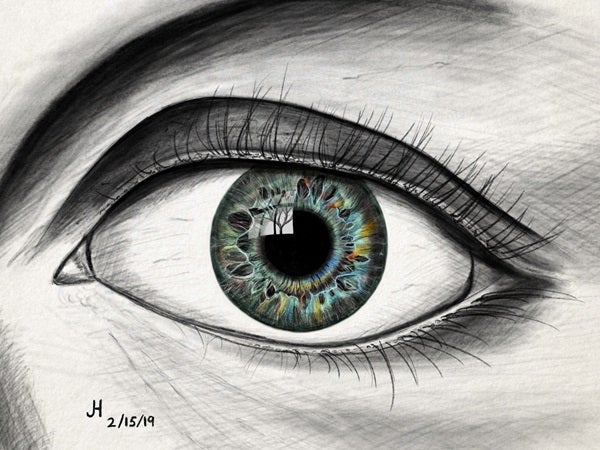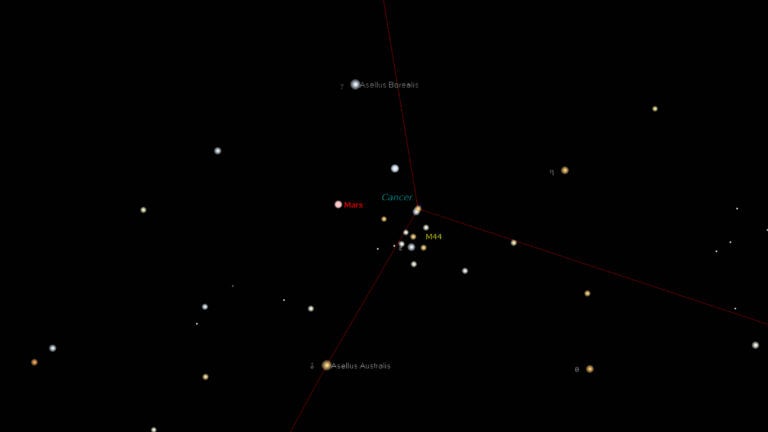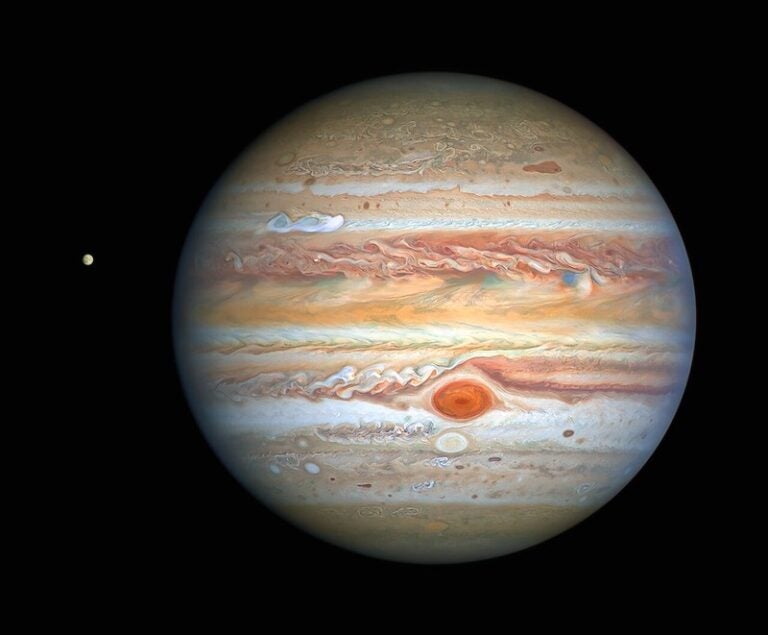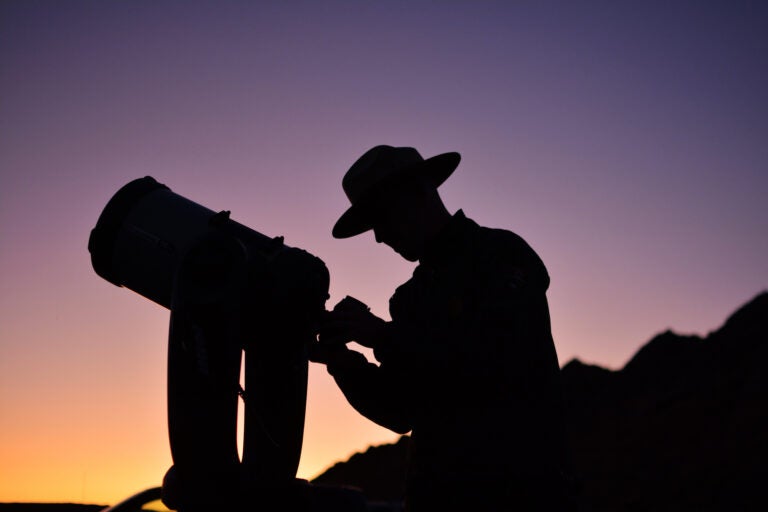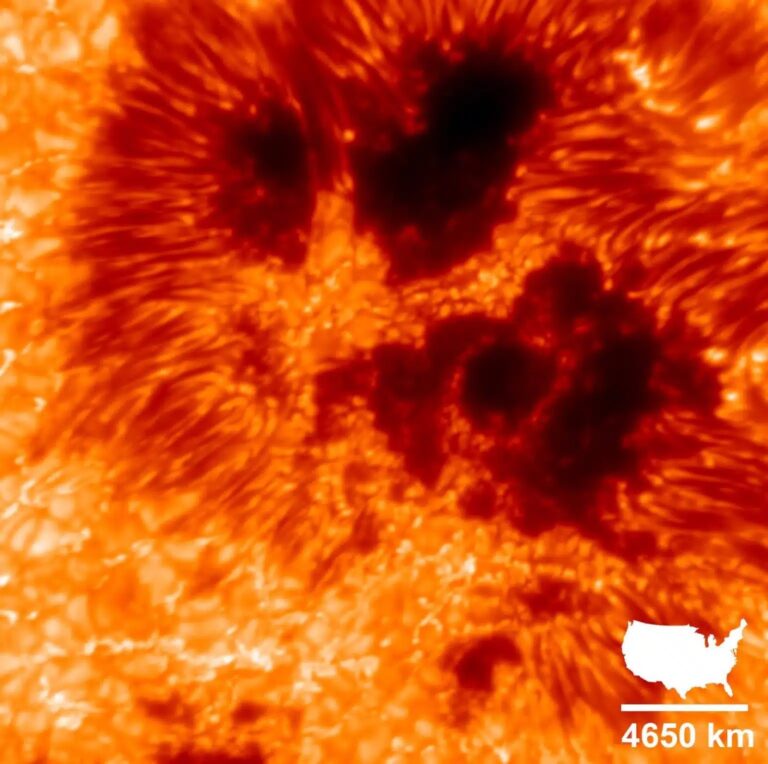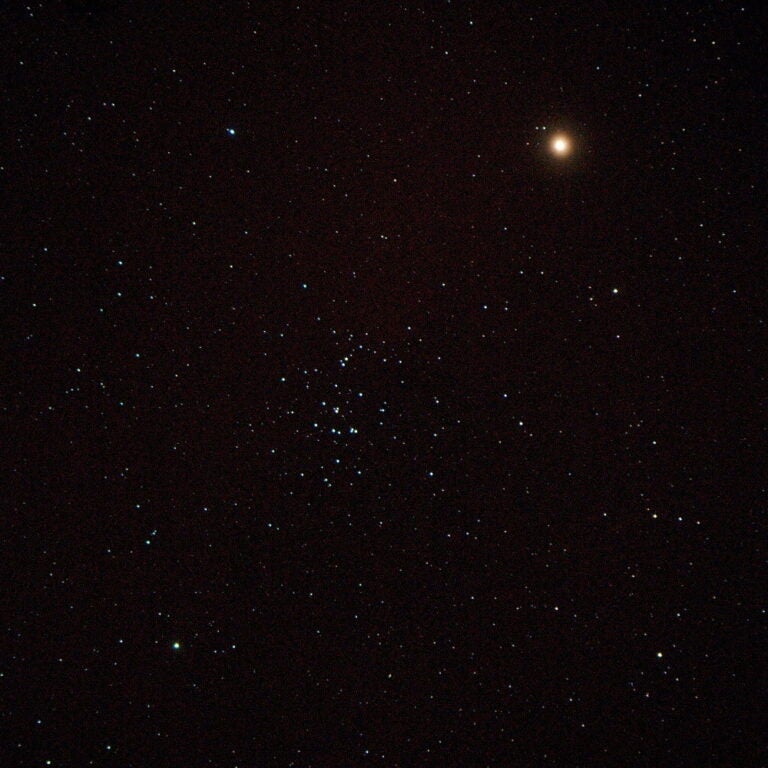Sixty may be the new 40 and all that, but it’s still not a bad time to take a gander at progress on the old bucket list. I’ve always wanted to learn to draw, so a couple of months ago, I settled on a nice drawing app for my tablet, signed up for some online drawing classes, and took the plunge.
Since then, my world has changed, and I don’t mean that metaphorically. The world of my conscious experiences and perceptions — the only world that I will ever directly know — is now a different place than it was before I picked up a pencil.
Let me give you an example of what I mean: eyes. Until very recently, had you handed me a pencil and asked me to draw an eye, I would have handed you back a football with a basketball in the middle, and a handball in the middle of that.
There might have been some Charlie Brown eyebrows, just for effect. Sure, I knew there was other stuff going on, but that pretty well captures the basics. Right?
How could I have been so blind? Over the last few weeks, I’ve probably weirded out a person or two by staring intently into their eyes for no apparent reason. Suddenly I can’t help but see the fascinating, elegant, uniquely flowing forms that cradle the organs responsible for focusing and detecting light from the world around us.
And pupils! The pupils veritably dance with reflections of the world. I swear those didn’t used to be there! I’m certain I would remember if they had been.
OK, of course they were there. I knew that intellectually. But now they are just there. I cannot not see them. I cannot not see the world around me in those reflections. As an astrophysicist, I cannot not see the optics that form the crisp and suddenly ever-present anamorphic images in a cornea’s curved surface.
I try not to gawk.
Again, nothing in the world around me has changed since I started learning to draw. But the world I consciously inhabit is now noticeably a different place.
In my February 2018 column, “Constrained hallucinations,” I talked about the counterintuitive way that our brains construct our perceptions of the world. Our senses do not show us the world, no matter how much it seems that they do. Instead, our brains construct near-real-time models (simulations) of the world around us, then use those models to make predictions. Those predictions are then tested against data from the senses. After being modified to resolve discrepancies between prediction and data, the brain’s simulation of the world becomes our conscious perceptions.
In short, we live inside a Matrix of our own making. Our senses do not show us the world. Instead, they provide error signals that help tether our constructed perceptions, however loosely, to objective reality.
By the way, your brain can’t very well build meaning, understanding, and experience you don’t have into its model of the world. Digging into the neuroscience of perception in the predictive brain is itself the kind of experience that reshapes our perceptions. Increasingly, I find myself consciously aware of the construction of my own conscious awareness. (No hallucinogenics involved, I swear!) I’m still wrapping my head around that.
When I started this column, I was thinking about the connections between art and science and the extraordinary ways that being an astrophysicist has altered my own perceptions. That still might make a good column someday.
But what I really want to do right now is ask you, the individual reader, a few questions. You read Astronomy magazine, so this stuff might just float your boat. I hope you’ll have some fun and play along!
Which of your conceptions and experiences most profoundly shape your own unique conscious reality? What kinds of things exist in your perceptions that might not be there for most people? What sorts of stuff might be prominent in the conscious worlds of some others yet absent from your own?
You have to live with questions like that for a while to find answers, but I really hope you’ll give it a shot. Imagine what you might discover by paying focused attention to how you construct your own perceptions.
Be careful, though. You can’t watch yourself perceive the world without also better seeing the objective world itself. That’s basically what science does, and it can really blow your hair back!

